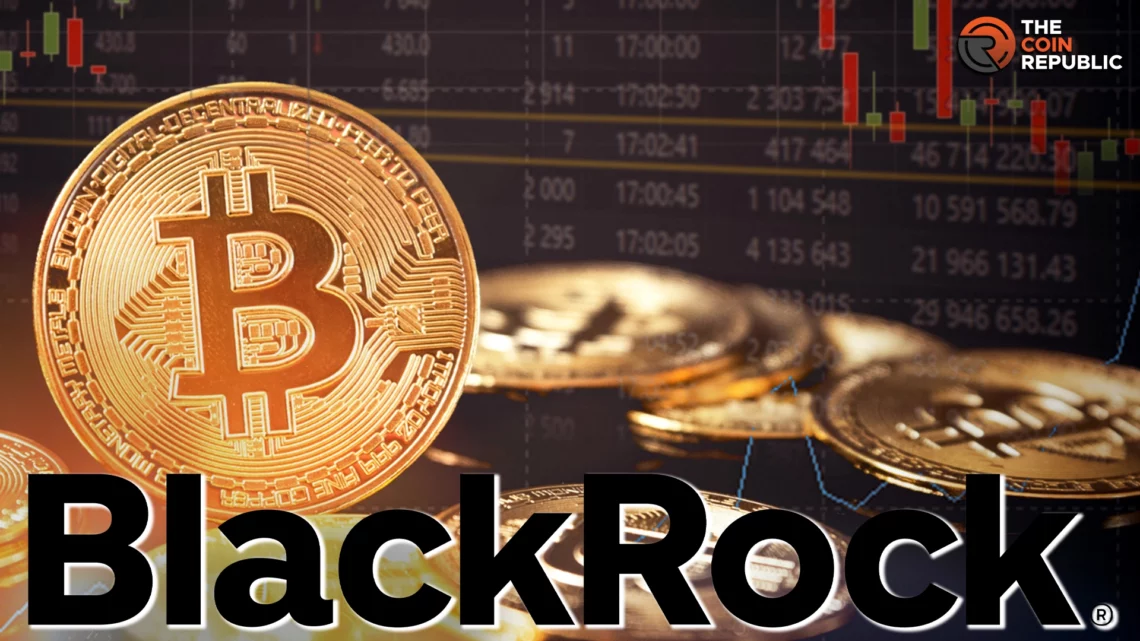BlackRock’s IBIT Bitcoin ETF has cemented its position as a prominent choice in the rapidly evolving Bitcoin ETF landscape, drawing substantial interest from institutional investors. The ETF has attracted around 30 fund managers, who currently hold just 0.2% of its total shares, a modest start that experts believe is the beginning of a potential surge in future investments.
According to Eric Balchunas, a Bloomberg analyst, the cautious yet ongoing “nibbling” trend among fund managers, where they make small, incremental investments, suggests a slow but steady buildup of Bitcoin exposure through BlackRock’s IBIT ETF. This contrasts with the lower interest in Fidelity’s FBTC ETF, which has garnered investments from only 11 investors.
The Mechanism Behind ETF Investments
Exchange-traded fund (ETF) specialist James Seyffart notes that in the US market, where there are about 3,500 ETFs available, it is common for some of them to draw no new investments daily. He explores the creation unit mechanism, which is a critical component in controlling the supply and demand of shares of exchange-traded funds.
The creation unit mechanism is essential to preserving the equilibrium between investor demand and ETF share supply. This approach allows authorized participants (APs) to create new shares when investors want to purchase shares in an ETF. On the other hand, APs redeem shares that investors sell, efficiently controlling the ETF’s liquidity.
Seyffart’s study clarifies the complexity of ETF operations, highlighting how the creation unit mechanism keeps ETF values closely tied to the value of their underlying assets. Thanks to this technique, ETFs provide investors with a practical and effective approach to increasing their exposure to a wide range of markets and asset classes.

These large blocks of shares adjust the number of ETF shares available depending on market demand. Seyffart emphasizes that significant discrepancies between supply and demand are required to trigger these adjustments. Market makers play a crucial role in this system, facilitating efficient trading and flow management in the ETF markets.
BlackRock’s IBIT Stands Out In A Crowded Field
While most Bitcoin ETFs reported no new inflows recently, BlackRock’s IBIT stood out with a notable $73.4 Million influx on April 15. In contrast, other ETFs, except for Grayscale’s GBTC, saw no new investments, highlighting BlackRock’s unique position in the current market dynamics.
This pattern suggests a growing acceptance and integration of Bitcoin within traditional investment frameworks, indicating a potential shift towards broader institutional adoption.
A Milestone In Bitcoin’s Mainstream Acceptance
The surge in interest in BlackRock’s IBIT ETF shows a critical turning point in assimilating Bitcoin into the mainstream investment environment.
The increasing number of fund managers allocating funds to this ETF highlights Bitcoin’s increasing acceptability and attractiveness as an asset class for institutional investors. This development could reinforce BlackRock’s role as a trailblazer and open the door for additional adoption and market growth for Bitcoin ETFs.

Adarsh Singh is a true connoisseur of Defi and Blockchain technologies, who left his job at a “Big 4” multinational finance firm to pursue crypto and NFT trading full-time. He has a strong background in finance, with MBA from a prestigious B-school. He delves deep into these innovative fields, unraveling their intricacies. Uncovering hidden gems, be it coins, tokens or NFTs, is his expertise. NFTs drive deep interest for him, and his creative analysis of NFTs opens up engaging narratives. He strives to bring decentralized digital assets accessible to the masses.


 Home
Home News
News










